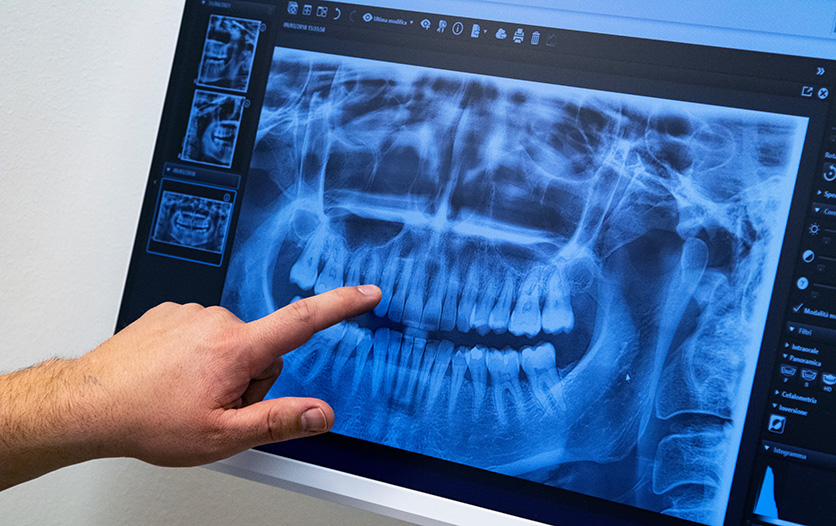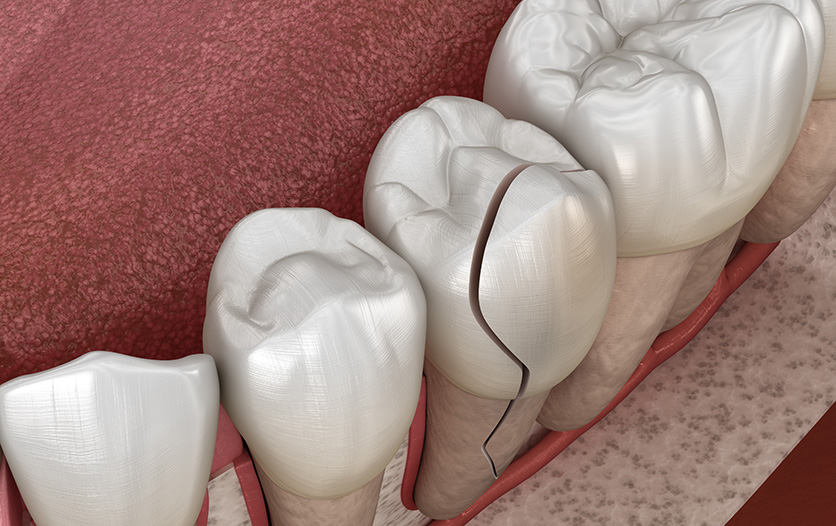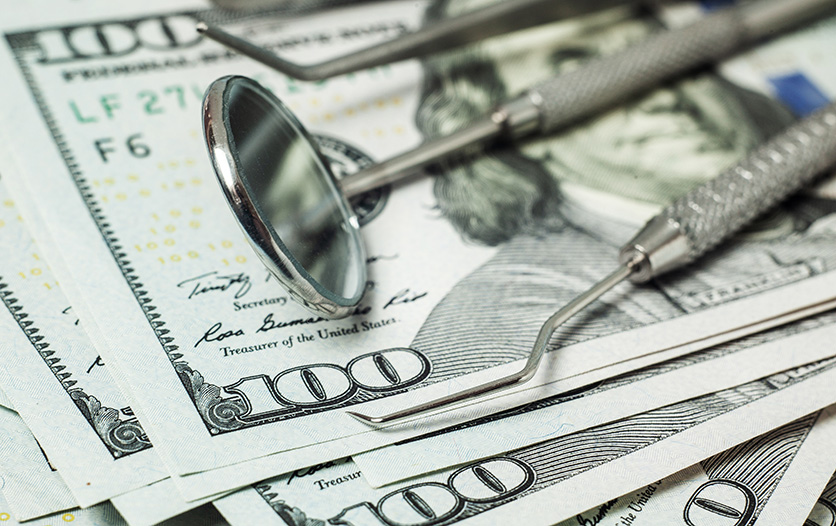
Everything You Need to Know About Oral Cancer Screenings
As the title implies, oral cancer screenings are used to detect cancers or pre-cancerous conditions in and around the mouth — lips, tongue, cheeks, floor of the mouth, and hard and soft palate.
Who Performs an Oral Cancer Screening?
A dentist or doctor can examine your mouth for signs of cancer during your routine checkup. It’s a standard part of dental care services. Your provider knows what a healthy mouth should look like and is skilled at detecting abnormalities, such as lumps or irregular tissue changes in your oral cavity.
When examining your mouth, your dentist will look for any sores or discolored tissue as well as any tumors or cysts. It’s important to know that not all oral abnormalities are malignant (meaning cancerous). A biopsy will typically be ordered to help determine the nature of the condition.
What Are the Warning Signs?
- Red, white, or a combination of red and white patches on oral tissue
- Sores (ulcerations), particularly those that bleed easily and are not healing
- Swelling or abnormal thickening of oral tissue
- Masses or lumps
- Enlarged lymph nodes in the neck
- Unexplained numbness
- Chronic sore throat, hoarseness or change in voice
- Difficulty swallowing or chewing
- The sensation that something is stuck in the back of the throat
While it might be distressing to experience any of the above, please remember that the presence of any one or more of these symptoms does not automatically mean cancer. There may very well be other factors going on. However, it is important to screen regularly as any untreated issues that are left ignored for too long, may increase the risk of cancer developing over time.
Who Is at Greatest Risk?
According to the American Cancer Society, men are twice as likely to develop oral cancer as women. The average age of people diagnosed with oral cancers is 63, but they can occur in younger people. Approximately 20% of cases occur in patients younger than 55. Men who are over age 50 face the greatest risk. It’s estimated that there will be approximately 54,000 new cases diagnosed in 2022.
Are There Any Factors that Increase the Risk?
The answer is yes. Below are some factors that may increase your risk of developing oral cancer:
- Age: Men over 50 face the greatest risk as it can take years to develop, however younger men are at risk, which can be linked to HPV.
- Excessive consumption of alcohol
- Excessive sun exposure
- Family history of cancer
- Gender: As mentioned above, men are twice as much at risk as women.
- Human Papillomavirus (HPV): Certain HPV strains elevate the risk of contracting Oropharyngeal Squamous Cell Carcinoma (OSCC).
- Poor diet
- Smoking: Smokers (cigarette, cigar, or pipe) are 6x more at risk than nonsmokers
- Smokeless tobacco: The use of smokeless tobacco products such as chewing tobacco increases the risk by 50%.
The best way to safeguard your health and wellbeing is to maintain preventative care with your general practitioner as well as scheduling regular dental exams and routine cleaning with your dentist.
When caught early, oral cancer is much easier and more effectively treated. Unfortunately, many people wait too long to get a diagnosis and seek treatment — when the cancer is too advanced or has spread to other areas of the body. If you see your dentist or doctor regularly and learn how to spot suspicious changes, you’ll have a much better chance at an early diagnosis and consequently, treatment.
We are proud to offer our patients comprehensive and compassionate dental care, including oral cancer screenings.
Protect your health now and contact Evers Dental today.




